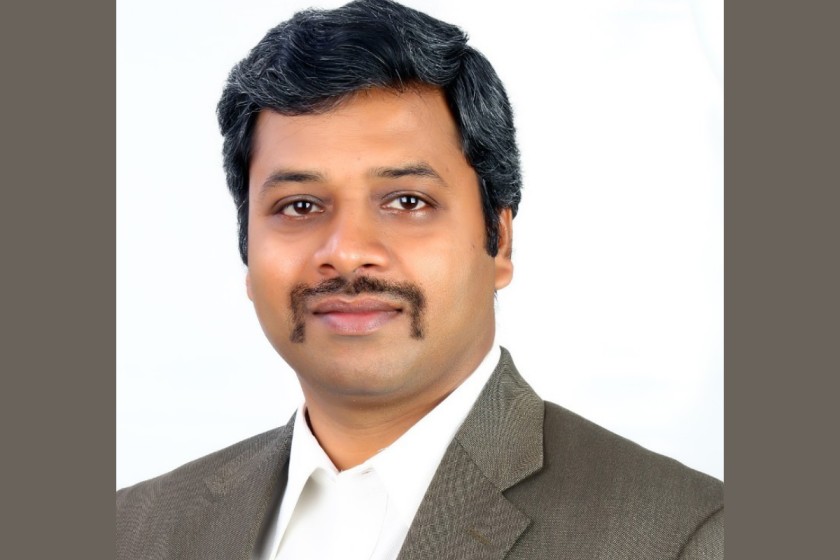- September 9, 2024
How Moder’s Sarvesh KP is integrating finance and strategy for holistic transformation

In an exclusive interview with CFO India, Sarvesh KP, Global Vice President and Finance Head, Moder Solutions, shares his journey in finance transformation, navigating strategic decision-making, right from setting up Global Capability Centres (GCCs) to embracing digital transformation across various industries. He offers valuable insights into the evolving role of today’s CFOs and provides advice for young professionals.
Below are the edited excerpts:
Q. In your career spanning over two decades, you’ve done transformation in the area of finance . Could you share some initiatives you’ve undertaken over the years that have significantly impacted financial and operational processes?
Sarvesh: I have worked across various industries, starting my career in manufacturing and, since 2000, primarily within the IT industry, including product, IT services, and BPO companies. I have experience with both listed and unlisted companies. In many of my roles, I have been responsible for building the finance department from scratch. For example, in my current company, I was the first finance employee. Initially, the finance function was entirely outsourced, but as we grew as a GCC, we recognised the need for insourcing. I established new policies, processes, systems, and built the team from the ground up, which has been one of my core strengths. I also oversee other departments such as Admin, IT, Legal, CSR, and HR Payroll. Additionally, today’s CFO is expected to understand and drive the organisation’s technology requirements, which has become a key part of the role.
Q. Given your diverse experience working with promoters, CEOs, and other profiles, how have you navigated influencing strategic decisions within organisations?
Sarvesh: Understanding the pulse of investors is crucial, particularly in family-run businesses. While these businesses are often large and professional, they don’t follow the hierarchical structure typical of listed companies. Decision-making is swift, allowing for quick actions. For instance, when pitching for a significant deal that requires a reduction in margins, I can make an immediate decision and obtain approvals from family-owned businesses, whereas in a listed company, board approval may be required. This flexibility is advantageous, but it also places considerable pressure on the CFO to deliver results quickly. Collaborating with CEOs, COOs, Sales Heads, and other leaders demands balance, quick thinking, and a careful analysis of the broader impact on the company. Ultimately, the CFO brings unique value by identifying business risks that others may overlook and plays a crucial role in risk mitigation.
Q. You’ve mentioned your experience in GCC operations. Could you share the challenges you’ve faced in setting up GCCs and how you overcame them?
Sarvesh: GCCs, though a recent term, have been a part of my career under different names, such as offshore development centres (ODC) or captives. One of the main challenges in this setup is managing cultural differences. Being based in India, I understand the local culture, but it is equally important to understand the culture of the parent company, whether in the US or Europe. Having worked with various MNCs, I have recognised the importance of bridging these cultural gaps from the outset.
Trust is another crucial factor that needs to be built from the beginning. Many companies often question whether offshoring or moving operations to another country will be successful. Therefore, transparency in operations is essential to reassure the parent company that the Indian subsidiary is simply an extension of their own business. By implementing best practices, adhering to policies, tapping into the highly skilled local talent pool, and running successful operations in India, we can clearly demonstrate value. It’s important to show that doing business in India is not as complex as often perceived, and to highlight the significant value we bring.
Q. How has digital transformation changed your perspective, and what message do you have for the CFO community regarding advanced technology and AI?
Sarvesh: The objective of any digital transformation is to align and integrate the needs of the entire organisation. In the past, departments like Sales, HR, Finance, and IT often operated separate digital platforms, leading to multiple data sources and discrepancies. Establishing a single database—a single source of truth—is critical to the success of a company’s digital journey.
All departments should integrate their systems around this central database to ensure a seamless flow of information. True digitalisation occurs when systems are fully integrated, enabling real-time insights for decision-making. Today, CFOs are expected to be tech-savvy, capable of overseeing digital platforms, and bridging the gap between business and technology. This combination is essential for the role of the modern CFO.
Q. Your experience goes beyond finance. How do you view the evolving role of CFOs, and what advice do you have for them?
Sarvesh: CFOs today are not just finance leaders; they are also strategic advisors, playing a key role in driving overall business growth and guiding investors in decision-making. This requires broad thinking and a wide range of capabilities.
Young professionals should cultivate a broader vision by recognising the interdependence between different departments within a company. It is crucial to understand end-to-end processes, such as procure-to-pay and order-to-cash, which involve multiple departments before Finance becomes engaged. Being aware of the company’s operations from a holistic perspective is essential.
I have learned the importance of proactively identifying risks and opportunities. Finance does not operate in isolation; it requires active interaction with all areas of the business. Understanding these interconnections enables more informed decisions and drives strategic growth.
